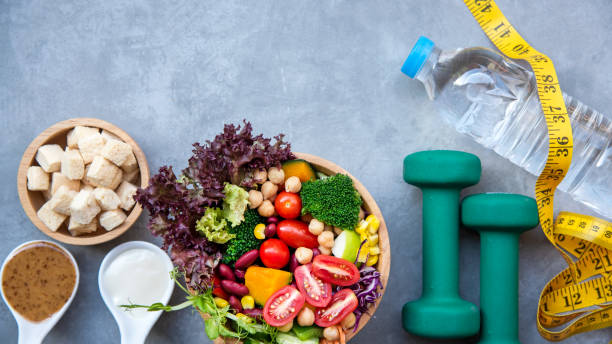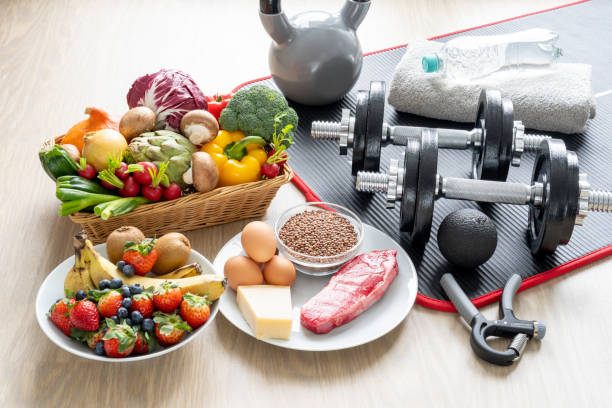Fueling Your Fitness: Tips for the Best Diet Plan to Complement Your Gym Workouts
Achieving your fitness goals isn’t just about what you do in the gym; it’s also about what you put into your body. A balanced and well-planned diet plays a vital role in optimizing your workout results. Whether your goal is to build muscle, lose weight, or improve overall fitness, here are some tips for creating the best diet plan to complement your gym workouts:

1. Prioritize Protein: Protein is essential for muscle repair and growth. Include lean sources of protein like chicken, fish, tofu, beans, and low-fat dairy in your diet. Aim to consume protein both before and after your workouts to support muscle recovery.
2. Carbohydrates for Energy: Carbohydrates provide the energy your body needs to fuel your workouts. Opt for complex carbohydrates like whole grains, brown rice, quinoa, and sweet potatoes. These will give you sustained energy for your exercise sessions.
3. Healthy Fats are Key: Healthy fats, such as those found in avocados, nuts, seeds, and olive oil, are important for overall health and can help with endurance during workouts.
4. Stay Hydrated: Proper hydration is essential. Dehydration can lead to decreased exercise performance and muscle cramps. Drink plenty of water throughout the day and consider a sports drink if your workout is particularly intense and sweaty.
5. Pre-Workout Nutrition: Consume a balanced meal or snack 1-2 hours before your workout. Include a combination of carbohydrates and protein to provide energy and sustain your effort.
6. Post-Workout Recovery: After your workout, refuel with a meal or snack rich in protein and carbohydrates. This aids in muscle recovery and replenishes glycogen stores.
7. Portion Control: Pay attention to portion sizes to avoid overeating or under-eating. Using smaller plates can help with portion control.
8. Balanced Nutrient Intake: Aim for a balanced intake of macronutrients (carbohydrates, proteins, fats) and micronutrients (vitamins and minerals). A variety of foods ensures that you get the necessary nutrients for overall health and fitness.
9. Limit Processed Foods: Minimize your consumption of highly processed and sugary foods, as they can negatively impact your energy levels and overall health.
10. Snack Smart: Opt for healthy snacks between meals, such as Greek yogurt, a piece of fruit, or a handful of nuts, to maintain your energy levels and avoid overeating during your main meals.
11. Listen to Your Body: Pay attention to hunger and fullness cues. Eating when you’re hungry and stopping when you’re satisfied can help you maintain a healthy weight.
12. Consistency Matters: A sustainable diet plan is key. Make sure your diet is something you can maintain in the long term. Extreme diets are rarely effective or healthy.
13. Consult a Professional: If you have specific fitness goals or dietary restrictions, consider consulting a registered dietitian or nutritionist for personalized guidance.
14. Keep a Food Diary: Tracking your food intake can help you identify areas for improvement and make adjustments to your diet plan.
15. Rest and Recovery: Don’t forget that proper rest and recovery are essential components of your fitness journey. Ensure you get enough sleep and allow your body time to recover between intense workouts.

Remember, the best diet plan is one that suits your individual needs and preferences. What works for one person may not work for another. Experiment with different foods, monitor your progress, and make adjustments as needed. By fueling your body with the right nutrients, you’ll optimize your gym workouts and move closer to achieving your fitness goals.

No Comments
Leave Comment